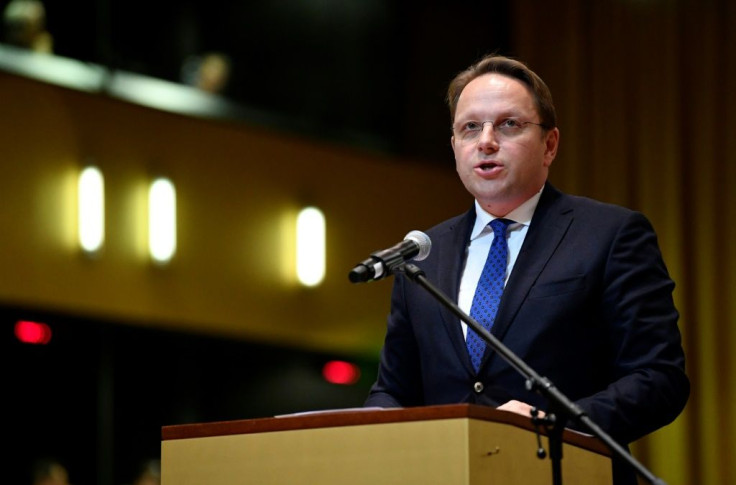EU Regains 'Crediblity' With Balkan Move

EU ministers on Tuesday approved starting membership talks with North Macedonia and Albania, a move hailed as restoring "credibility" after months of damaging delays and bickering.
The bloc's enlargement commissioner Oliver Varhelyi said the decision sent a "loud and clear message" to Balkan countries that their future lay in Europe.
The green light from the 27 EU member states marks a major turnaround from October, when France led a small group of countries in blocking accession talks.
That disappointment -- which followed several earlier delays -- prompted warnings that the EU risked opening the door to outside influence on its doorstep, notably from China and Russia.
"This also sends a loud and clear message to #WesternBalkans: your future is in EU," Varhelyi tweeted.
He added in a press conference: "I think today credibility has been delivered not only for the Western Balkans but for our member states."
Ursula von der Leyen, the head of the European Commission -- the EU executive branch that oversees the membership process -- tweeted that she was "delighted" by the news.
Former NATO chief Anders Fogh Rasmussen also welcomed the news, saying that amid the darkness of the coronavirus epidemic, "the EU has sent a strong signal to the Western Balkans that a bright future is on the horizon".
The decision will be endorsed by EU leaders in talks later this week -- via video link because of the coronavirus pandemic -- paving the way for the formal start of membership negotiations.
Albania still faces hurdles -- it must fulfil certain preconditions related to justice and the rule of law reforms before it can start the process.
While French President Emmanuel Macron was isolated in vetoing North Macedonia at the October EU summit, doubts about Albania were more widespread.
The Netherlands and Denmark joined France in voicing reservations about Tirana's efforts against corruption and organised crime.
Macron backed down last month after securing changes to the EU admissions process that make it tougher and more political.
After Tuesday's meeting, Dutch Foreign Minister Stef Blok acknowledged the progress made by Albania since October but said the preconditions still needed to be met.
"The conditions we raised are conditions that are logical for any EU country because they are so fundamental to the proper functioning of democracy where the rule of law is the cornerstone," Blok told reporters on a video call.
"We're not asking for anything impossible either from Albania or North Macedonia."
Even once formal negotiations are opened, it will likely be years before either country gets to join the bloc.
The last new member of the club, Croatia, joined in 2013 after an accession process lasting some seven years.
Varhelyi insisted that the extra conditions imposed on Albania were "strict and fair" and said there were "promising signs" Tirana is already making good progress towards satisfying them.
"I think by June when we come with the annual enlargement package, in it you will see most of these have already been met by Albania," he said.
The journey towards the EU has already involved major steps particularly for Skopje, where the government changed the country's name from Macedonia to North Macedonia in order to settle a long-running dispute with Greece.
© Copyright AFP 2024. All rights reserved.




















